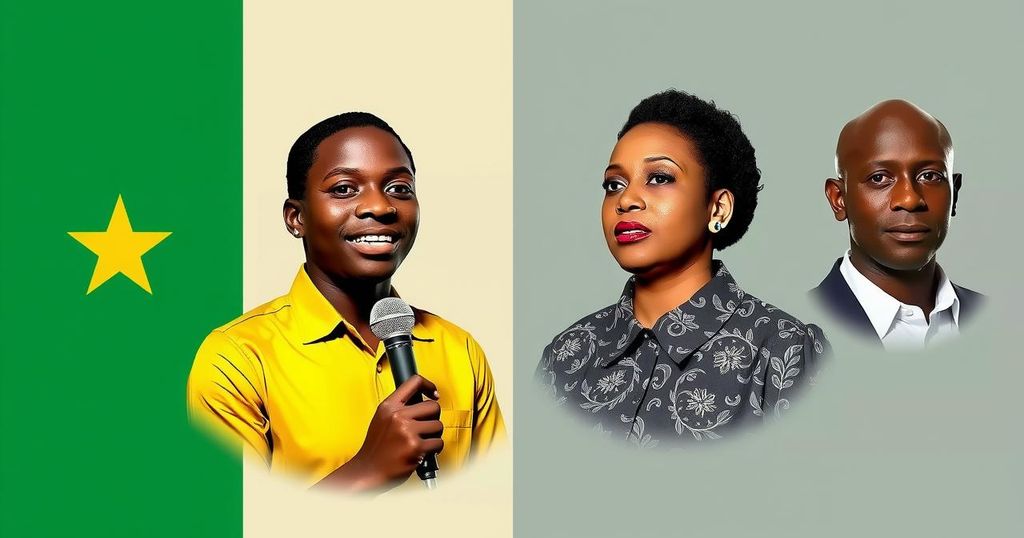Ghana’s Upcoming Presidential Election: Candidates, Challenges, and Consequences

Ghana’s presidential election on December 7 features Mahamudu Bawumia and John Mahama as leading candidates, amidst significant economic challenges and public concerns. The election, marking the nation’s ninth since the return to multiparty politics, will also include parliamentary races. Voter turnout is expected from around 18.8 million registered individuals, with the outcome likely influencing Ghana’s economic and environmental policies.
As Ghanaians prepare to select their next president on December 7, the election landscape features significant candidates, issues, and the implications for the nation. The two leading candidates are Mahamudu Bawumia, the current Vice President from the New Patriotic Party (NPP), and John Mahama, a former head of state from the National Democratic Congress (NDC). With approximately 18.8 million registered voters, this will be Ghana’s ninth general election since the return of multiparty politics in the early 1990s, renowned for its peaceful and organized transfer of power.
Voters will participate in two elections simultaneously: a presidential election with twelve candidates and a parliamentary election across 275 constituencies. Historical trends indicate that only candidates from the NDC or the NPP have secured victory since 1992, positioning Bawumia and Mahama as the primary contenders. Bawumia, an economist, may become the first Muslim president of Ghana, while Mahama seeks to reclaim the presidency after his previous term ended in 2016 amidst significant challenges. Other candidates, including businessman Nana Kwame Bediako and former minister Alan Kyerematen, are drawing attention but lack the broader backing of the major parties.
Economic concerns are paramount as Ghana grapples with inflation, unemployment, and poverty exacerbated by rising living costs and a major economic crisis. The World Bank estimates that approximately 850,000 individuals fell into poverty in 2022. The NDC criticizes the government’s performance, demanding a reset, while the NPP claims progress and resilience in the economy. Further compounding these issues, illegal gold mining, locally known as ‘galamsey,’ has raised environmental alarms, prompting calls for stricter regulations.
To win the presidency outright, a candidate must obtain over half the votes; otherwise, a runoff election will be scheduled. The parliamentary seats will be filled following a first-past-the-post system. Electoral integrity has been a focal point since past elections, marked by close races and disputes. The Electoral Commission is expected to announce results by December 10, further heightening the anticipation surrounding this crucial democratic exercise in Ghana.
The upcoming presidential election in Ghana is significant as it ushers in a potential change in leadership. With the current president, Nana Akufo-Addo, completing his second term, the nation is poised to see either Mahamudu Bawumia or John Mahama take over. Bawumia, the Vice President known for his economic expertise, faces scrutiny due to recent economic conditions under his administration. Meanwhile, Mahama, previously in office, aims for a return amid public dissatisfaction with the current government’s performance on critical issues such as economic stability and corruption. This election is not just about leadership change but also about responding to pressing economic issues and public sentiment that have developed over years.
In summary, Ghana’s forthcoming election holds critical implications for the nation’s future as the electorate must choose between experienced candidates amid pressing economic challenges. Bawumia, representing continuity, and Mahama, seeking redemption, will face off in a contest shaped by public demand for improvement in living standards and governance. As Ghanaians prepare for this pivotal decision, the outcomes will significantly impact the country’s trajectory and governance approach in the years to come.
Original Source: www.bbc.co.uk






